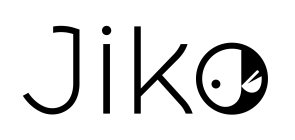On September 3, 2020, Jiko Group, Inc. (Jiko) became one of the first fintech companies to acquire a national bank. Jiko’s innovative banking solutions yield greater returns for depositors while offering significantly increased protection of deposits. While traditional bank accounts hold their clients’ money in deposits, Jiko permits its clients to invest directly in Treasury Bills (T-Bills), which are automatically liquidated when customers use their debit cards or withdraw cash from their Jiko accounts.
Barton LLP recently represented a minority investor in connection with Jiko’s acquisition of Mid-Central National Bank, headquartered in Wadena, Minnesota. The Federal Reserve Bank of San Francisco and the Office of the Comptroller of the Currency (OCC) approved the transaction in early September 2020. With Barton’s assistance, Jiko and its investors were able to ensure that the transaction was structured to address various issues arising under the Bank Holding Company Act and the Change in Bank Control Act so that Jiko’s minority investor would not be deemed a bank holding company as a result of its investment in Jiko. Deals of this nature often raise “safety and soundness” concerns from the OCC and FDIC as well, which were addressed through various structural changes.
On one hand, fintechs typically must ally themselves with chartered banks to facilitate the roll-out and implementation of their products. On the other hand, the hardwiring of fintech products into the operations of a traditional bank often raises safety and soundness concerns on the part of the regulators.
Jiko operates both Mid-Central National Bank and a FINRA-registered broker-dealer. The day-to-day operations of Mid-Central National Bank remain separate from the broker-dealer and other fintech affiliates. This separation substantially allayed the regulators’ concerns regarding “safety and soundness.” Through Jiko’s technology innovations, Jiko created control and risk assessment procedures that further addressed the regulators’ concerns as to safety and soundness, which was essential to obtaining regulatory approval of the bank acquisition.
Jiko’s structure and technology enable the bank’s deposit holders to open an account at the affiliated broker-dealer and directly invest in U.S. government-backed T-Bills. With a typical bank account, the bank takes a deposit and agrees to pay the depositor a return on the deposit. The bank then takes the proceeds of the deposit and makes investments (such as making interest-bearing loans). Jiko’s innovation allows the deposit holder to invest directly in T-Bills that can be liquidated immediately. This is an attractive benefit for account holders since deposits in the bank are insured by the FDIC up to $250,000, while funds invested in T-Bills through the brokerage account are insured by the SIPC up to $500,000.
While the Jiko transaction is ground-breaking as one of the first fintech acquisitions of a national bank, it also provides a new roadmap for fintech companies to restructure their relationships with chartered banks to achieve broader technology adoption, regulatory comfort, and alignment with their banking partners. The innovative structure of the Jiko transaction enables fintechs to develop products for licensed banks while insulating the licensed bank from new product risk by implementing new technology solutions through affiliates of a bank holding company. This approach greatly reduces risk for the licensed bank, which is critical to obtaining approval from both regulators and banking partners.
About the Barton Fintech Practice
Barton’s Fintech Team represents fintech and banking clients on many transactions and regulatory compliance matters. Barton regularly advises fintech and financial services clients on licensed bank acquisitions; negotiation of financial technology and licensing agreements; and state level approvals for lending and money service business licenses.

